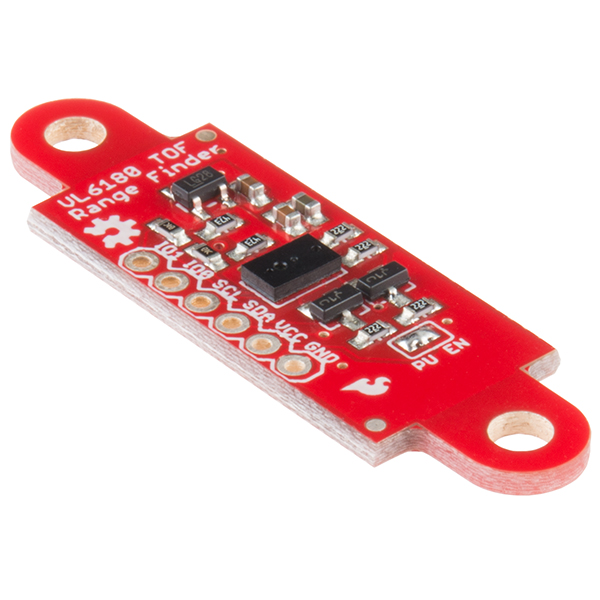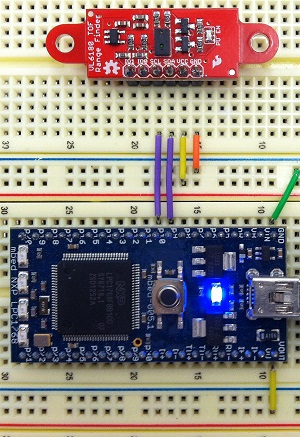VL6180 Time of Flight Range Finder

The VL6180 works by measuring the time it takes for light to bounce off of a distant surface. This is a more accurate method than using reflected light intensity or a reflected angle measurement. It is available from Sparkfun.
Hello World
main.cpp
//updates the pc terminal with range readings twice a second
#include "VL6180.h"
#include "mbed.h"
VL6180 rf(p9, p10); //I2C sda and scl
Serial pc(USBTX, USBRX); //USB serial
int main() {
float reading;
while(1) {
reading = rf;
pc.printf("Read %4.1f cm\n", reading);
wait(0.5);
}
}
Import programVL6180_Hello_World
Hello world program for the VL6180
Library
Import libraryVL6180
Library for the VL6180 time of flight range finder.
Pinout
| VL6180 breakout board | mbed |
|---|---|
| Vcc | Vout |
| Gnd | Gnd |
| sda | p9 |
| scl | p10 |
| IO0 | NC |
| IO1 | NC |
Images

Connection of breakout board to mbed.

Screen capture showing output of hello world program.
Usage
To use the VL6180 breakout board, connect it to mbed according to the pinout above. Then, create a VL6180 object in the C++ code. The constructor automatically handles initialization of the device. The read() function returns a float ranging from 0.0cm to 25.5cm according to the distance the range finder read. The maximum range is approximately 20cm. When this distance is reached, the read() function will return 25.5cm instead.
Notes
Although the VL6180 chip requires 2.8V to work properly, the Sparkfun breakout board includes a 2.8V voltage regulator. This allows the board to run off of mbed's 3.3V supply. The breakout board also includes the pull-up resistors necessary for I2C to work properly.
How It Works
Datasheet wrote:
The VL6180X is the latest product based on ST’s patented FlightSense™ technology. This is a ground-breaking technology allowing absolute distance to be measured independent of target reflectance. Instead of estimating the distance by measuring the amount of light reflected back from the object (which is significantly influenced by color and surface), the VL6180X precisely measures the time the light takes to travel to the nearest object and reflect back to the sensor (Time-of-Flight).
Additional Resources
Please log in to post comments.
